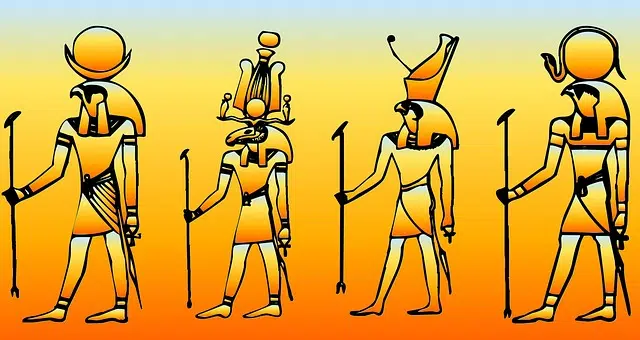
Polytheism is the doctrine of those who believe in many gods.
You have to go to Greek to find the etymological origin of the term polytheism , which means "doctrine that follows many gods." It is the result of the sum of three components of said language:
-The prefix “poli”, which can be translated as “many”.
-The noun “theos”, which is synonymous with “god”.
-The suffix “-ism”, which indicates doctrine.
Polytheism is a concept that can be understood as “many gods” . It is, therefore, the doctrine followed by those who believe in more than one god .
Examples of polytheism
Polytheism, in this way, is opposed to monotheism (the doctrine based on the existence of a single god). Catholicism , Judaism , and Islam are monotheistic religions; On the other hand, Hinduism is polytheistic.
Although there are different groups, it can be said that Hindus worship Shiva , Vishnu , Kali , Krishna and other gods. In this way, it is easy to see that it is a religion oriented towards polytheism. If we compare this belief system with Catholicism, it is easy to find the differences, since Catholics believe in only one god (the Almighty God ).
In ancient times, the Romans, Greeks, Egyptians, Celts and Americans were polytheists. Generally, these cultures had a pantheon of gods in which they believed and with whom they communicated through certain people who would have said intermediation capacity, such as different types of witches.

The people of Ancient Egypt were adherents of polytheism.
Roman gods
In the case of the Roman polytheistic religion we can find a great variety of gods, among which the following stand out:
-Jupiter, the equivalent of the Greek Zeus, who was the father of the gods and men. He was identified by his lightning bolt.
-Juno was the queen of the gods as well as protector of the family.
-Neptune, the god of the sea.
-Mars, the god of war.
-Minerva, the goddess of wisdom and intelligence.
-Venus, the goddess of love.
-Mercury, the god of commerce.
Comparison between polytheism and monotheism
There are many discussions that have revolved around whether polytheism or monotheism is better. Therefore, there is nothing better than taking into account its pros or advantages in this regard:
-Monotheism, for example, can become absolutely intolerant. And that would later translate into atrocities of all kinds.
-In polytheism there is an “explanation” for everything since any fact or situation is attributed to one god or another.
-Likewise, it should not be overlooked that it is considered that in polytheism man is given more opportunities if he commits a “sin.” And he can appeal to a god to intercede for him before another god. In the same way, men and women are given more freedom to act because their gods are not omnipotent.
Henotheism and neopaganism
Between polytheism and monotheism is henotheism . In henotheism, several gods are believed, although one has preponderance over the rest and, therefore, is the one who receives worship. Anthropologists maintain that many ancient societies moved from polytheism to henotheism and, from this, finally reached monotheism.
Currently, certain doctrines that are polytheistic and that combine different elements of religions prior to Christianity are known as neopaganism .
